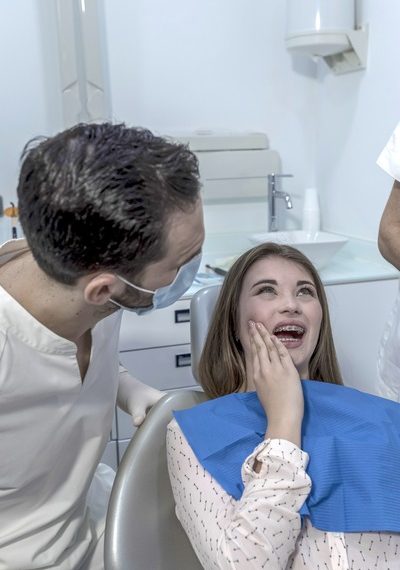Life can be unpredictable, and so can the state of our dental health at times. Dental emergencies are not fun to deal with, and they often require prompt attention to avoid lasting damage. We will explore some of the most common dental emergencies and how they can be handled effectively.
What Exactly Is Considered a Dental Emergency?
First things first, let’s clarify what a dental emergency is. A dental emergency is anything involving the teeth and supporting tissues that require immediate attention. It could be due to trauma, pain, or severe infection, and addressing it promptly is crucial to alleviating symptoms and preventing further complications.
Chipped or Broken Teeth
One of the most common dental emergencies is a chipped or broken tooth. It could happen due to an accidental fall, a sports injury, or even biting down on something hard. Chipping doesn’t just affect the tooth’s appearance; it may also cause significant discomfort if the pulp inside is exposed.
Immediate Actions
-
Rinse your mouth with warm water and use a cold compress to reduce swelling.
-
If you can find the broken piece, keep it moist, ideally in some milk, as the dentist may be able to reattach it.
-
Avoid chewing on hard foods and see a dentist as soon as possible.
Knocked-Out Tooth
This might sound like a scene straight out of a hockey game, but knocked-out teeth are quite common during accidents or sports events. Acting quickly can greatly increase the chance of saving the tooth.
Steps to Take
-
Handle the tooth by the crown, not the root.
-
Rinse it gently with water if dirty, but avoid scrubbing.
-
Place the tooth in its socket immediately or keep it in milk to preserve it.
-
Visit the dentist quickly for the best chance of successful reinsertion.
Toothaches
A toothache might seem like a small discomfort, but it can quickly escalate into a major issue, indicating decay, infection, or gum disease.
What to Do
-
Rinse your mouth with warm water and floss to remove any trapped food.
-
Avoid putting aspirin or painkillers directly against the gums as it could damage the tissue.
-
Schedule a dental appointment to investigate and treat the underlying cause.
Lost Filling or Crown
Fillings and crowns can come loose, often while eating. This could leave the tooth exposed to further damage or infection, making it necessary to consult a dentist.
Temporary Measures
-
Try to keep loose restorations safe to bring with you to the dental clinic.
-
Use dental cement that you might find at a pharmacy as a temporary solution.
-
Avoid eating hard foods that could damage the remaining structure of the tooth until you see a professional.
If you’re in the area, you might consider visiting an emergency dentist in Boca Raton FL for swift relief.
An Abscessed Tooth
An abscessed tooth is a serious condition that can lead to significant pain and swelling due to a pus-filled pocket caused by a bacterial infection. Left untreated, it can also lead to more severe health issues.
How to Manage
-
If you suspect an abscess, rinse your mouth with a mild saltwater solution several times a day.
-
A cold compress can help ease the swelling and pain.
-
Make an emergency appointment with a dentist, as antibiotics or a root canal may be necessary.
Broken Braces or Wires
For those with braces, broken wires or brackets can be more than a small annoyance. They can cause irritation to gums or cheeks and even impact the effectiveness of the orthodontic treatment.
Possible Remedies
-
If a wire is poking, you can use an eraser or a cotton swab to push it against your teeth gently.
-
Cover sharp areas with orthodontic wax to prevent irritation.
-
Consult your orthodontist to fix the problem professionally.
You might find that a dental clinic in Boca Raton FL can provide assistance with such issues.
Suffering from Severe Gum Bleeding
While minor gum bleeding is not uncommon, particularly if you’ve just started flossing, severe or persistent bleeding could indicate a more serious problem, such as gum disease or an injury.
What to Consider
-
Clean your mouth by gently rinsing it with water and evaluate the source of the bleeding.
-
Avoid hard foods and maintain oral hygiene.
-
Seeking professional advice is important to diagnose and treat the underlying problem effectively.
If you are experiencing a severe dental emergency and need an immediate response, you can search for “dentist near me” if ever you need help finding the closest care provider.
Food or Object Stuck Between Teeth
While this might seem trivial, getting food stuck can cause gum irritation and infection if left unattended, particularly if you attempt to dislodge it with something sharp.
Appropriate Measures
-
Try using dental floss to remove the stuck object, avoiding pointed tools carefully.
-
Rinsing your mouth with water can help as well.
-
If it doesn’t come out, a dentist has the proper tools to remove it safely without causing damage.
Swollen Mouth or Jaw
Swelling in the mouth or jaw can indicate a serious infection or other dental issues. It could also be due to an allergic reaction, injury, or a blocked salivary gland.
Steps to Take
-
Apply a cold compress to the swollen area to reduce discomfort.
-
Avoid hot foods or drinks that may aggravate the swelling.
-
Consult a dental professional to determine and address the root cause.
Final Thoughts
Dental emergencies can happen to anyone at any time, and knowing what steps to take can significantly reduce pain and prevent further complications. While initial measures at home might alleviate discomfort temporarily, professional dental intervention is often required to address the issue fully. Being aware of a reliable emergency dental service nearby is always a wise move. From knocked-out teeth to severe toothaches, contact a dentist promptly to ensure your dental health is in good hands.





